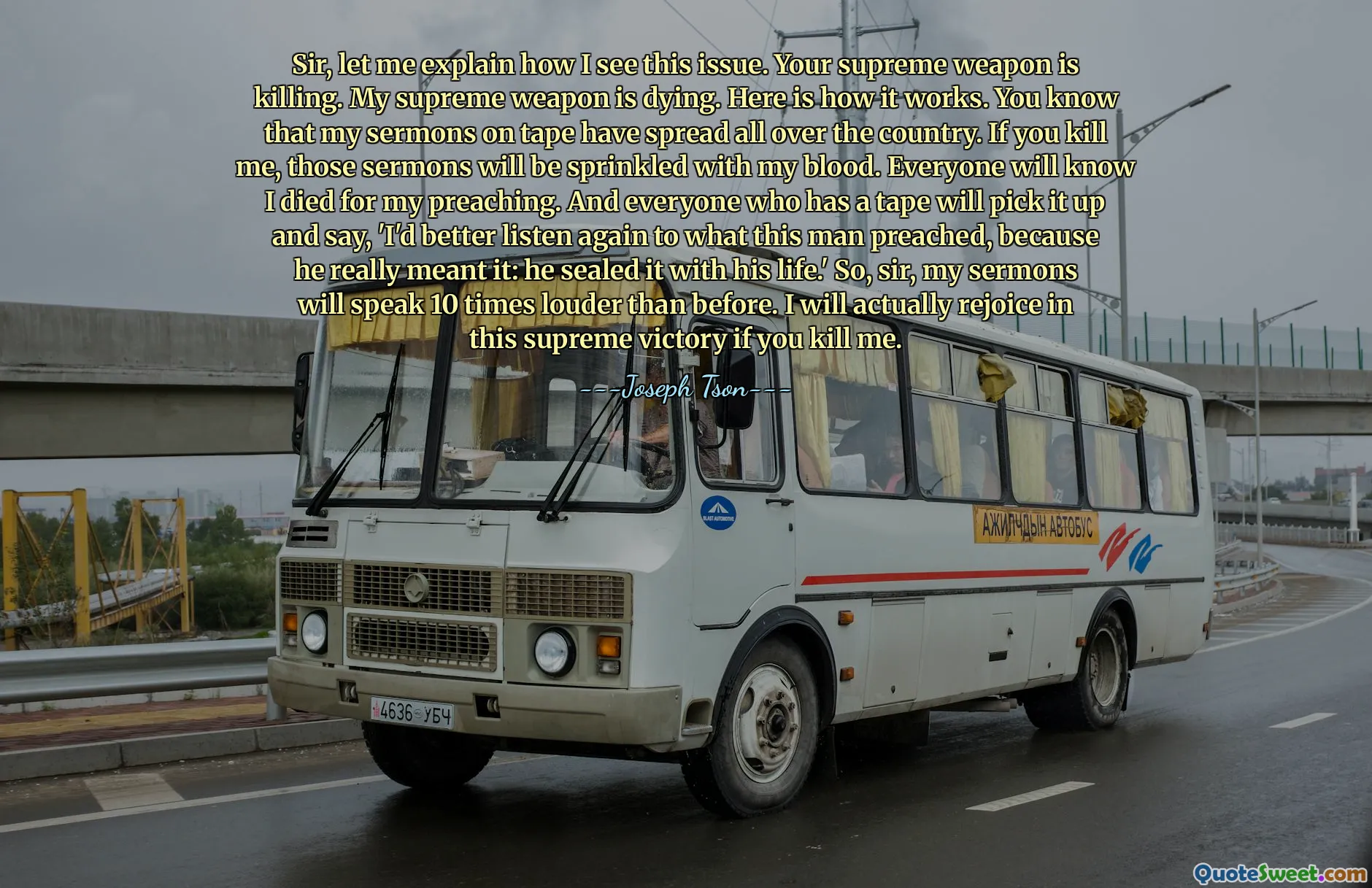
Sir, let me explain how I see this issue. Your supreme weapon is killing. My supreme weapon is dying. Here is how it works. You know that my sermons on tape have spread all over the country. If you kill me, those sermons will be sprinkled with my blood. Everyone will know I died for my preaching. And everyone who has a tape will pick it up and say, 'I'd better listen again to what this man preached, because he really meant it: he sealed it with his life.' So, sir, my sermons will speak 10 times louder than before. I will actually rejoice in this supreme victory if you kill me.
This quote presents a profound and provocative perspective on the power dynamics between oppression and resistance, particularly highlighting the concept of martyrdom. The speaker contrasts two strategies: one of violence and killing, and the other of sacrificial dying. While killing is an external imposition, dying here is portrayed not as defeat, but as a form of lasting influence and resilience. The analogy of sermons spread across the country symbolizes the dissemination of an idea or belief system that, rather than being silenced by the death of its proponent, grows louder and more potent. The imagery of blood sprinkled over the sermons suggests a profound intertwining of personal sacrifice with ideological conviction; the martyr's death serves to authenticate and embolden the message.
This speech also highlights an existential challenge to those who wield power by violence—the recognition that true power lies not just in the ability to take life, but in the resolve and meaning behind giving life for one’s beliefs. It implies that the act of dying for a cause transcends the physical violence intended to suppress it and instead becomes a catalyst for wider societal change.
Moreover, the quote invites reflection on how individuals and movements facing repression can leverage the inevitability of death as a form of moral and ideological strength. It inspires courage and conviction, suggesting that in enduring suffering or death, one can achieve a form of victory far greater than survival. The poignant assertion, "I will actually rejoice in this supreme victory if you kill me," encapsulates a fearless determination to remain undefeated in spirit, making it a powerful testament to sacrifice and the enduring power of ideas.
---Joseph Tson---






